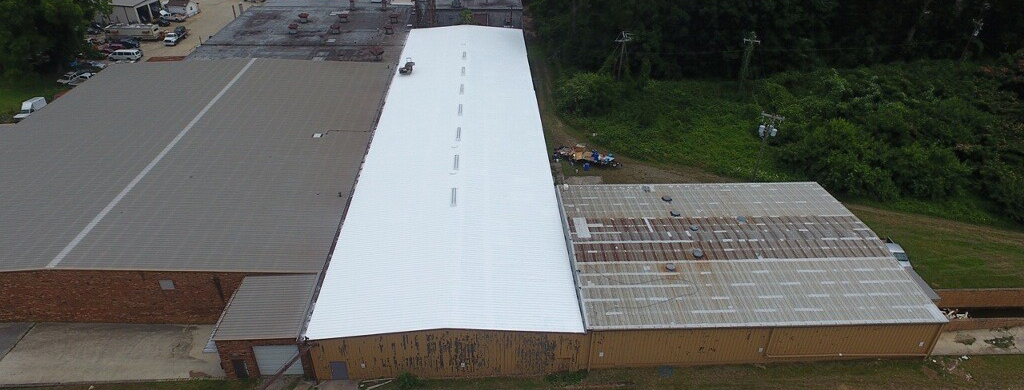Call us Today: 717-449-8612
MenuWaterproof Roof Coating



When it comes to cost saving initiatives that both protect and provide value to your business, a waterproof roof coating is one of the best investments you can make. Instead running the risk of letting your roof fend for itself in various weather extremes, ensure that its protected and functioning properly when you hire us to give your building the waterproof roof coating it needs.
Roof Waterproofing: Why it Makes Sense for Your Business
The most common reason why businesses invest in roof waterproofing is to stop and prevent leaks. Almost all types of commercial roofs can be coated, including ones covered with asphalt, metal, or cedar shakes. Flat roofs can also be coated. The type of coating that's recommended will depend on several factors, some of which include:
- The overall condition of the roof
- The specific type of roof that's on your business
- The extent of direct exposure to the elements and moisture
The type of roof waterproofing that's often used on commercial roofs is a reflexive white color. A white, reflective coating can also direct UV rays away from a roof, which can lower the temperature of a roof and minimize issues with the transfer of heat and cold air between the outside and inside. Additional benefits you could enjoy with a waterproofing membrane applied to your roof include:
- Fewer instances of "surprise repairs"
- No major disruptions to your business while the coating is applied
- No exterior seams are visible
Applying a Roof Sealant or Coating to Your Commercial Roof
A waterproof roof coating is applied evenly across your entire commercial roof. It extends to all areas of your roof, including around hatches, pipes, vents, and other types of equipment commonly found on a commercial roof. The result is a full seal that's also waterproof.
There are several types of reflective roof coatings we can apply to a commercial roof. In some instances, the type of coating that can be used will be determined by the materials already on a roof's surface. For instance, a roof previously covered with silicone will not accept any other type of coating.
Some coatings or sealants are simply sprayed on, while others may be brushed or rolled on by skilled Glick Brothers Roofing contractors. Regardless of what type of coating or sealant is right for your roof, the application process typically involves:
- Thoroughly cleaning the substrate to remove dirt and debris
- Ensuring that the roof surface is completely dry
- Priming the surface to block bleeding of oils from the existing roof through the liquid membrane
- Checking the overall integrity of your roof's structure
- Correcting any surface damage that may make it difficult to apply a new coating or sealant
- Pretreating certain areas with reinforcing fabric embedded into the liquid membrane or a flashing grade sealant, if necessary
Waterproofing a Flat Roof in Lancaster, York, and Dauphin Counties
Coating applications for a flat roof will depend on the design and condition of the roof. With a flat roof that has a good slope that allows for sufficient drain-off or one that has a good drain system that prevents ponding, for example, coatings may primarily be for maintenance purposes. Otherwise, the application process is similar to what's described above.
Applying Coats with Attention to Every Detail in Mind
All commercial roof coatings need to be applied with manufacturer's product limitations in mind. This is why you are sure to appreciate the attention to detail that goes into our work. Our roofing experts also carefully comply with application instructions and common procedures in the safest and most efficient and effective way possible to ensure that a roof is sufficiently waterproofed. We also make sure that substrate surfaces are free of "bond breakers" that may affect a coating before applying a waterproofing membrane.
Waterproofing Roof Coating for Central PA Businesses
What's great about waterproof roof coatings is that they can be applied to both newer and older roofs. A waterproof roof coating on a new roof also reduces the heat load on the roofing assembly, which can result in added savings and improved energy efficiency. If you’re not sure if a waterproof roof coating is right for your building, contact us to speak to a representative who will happily assist you with all your questions.

